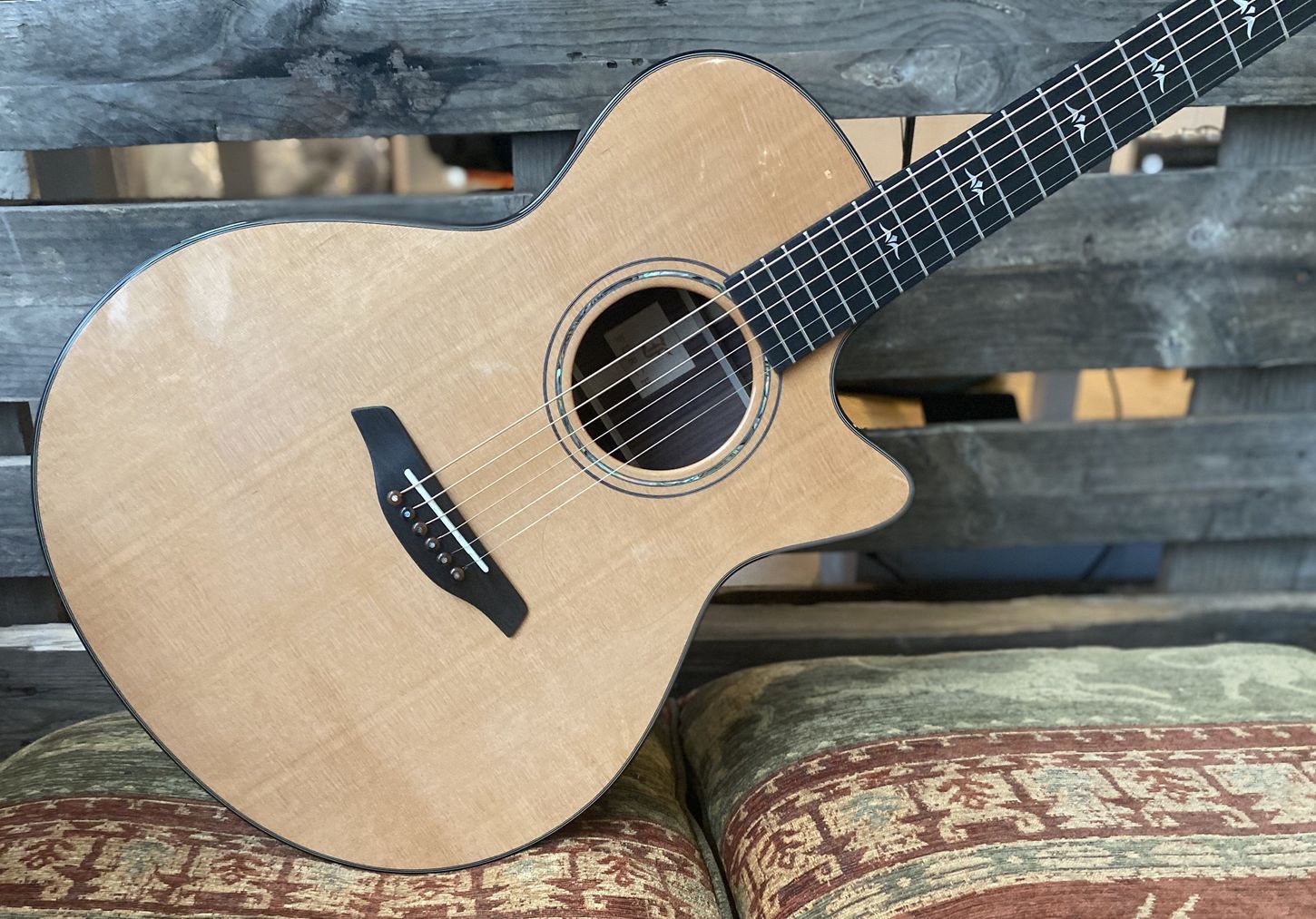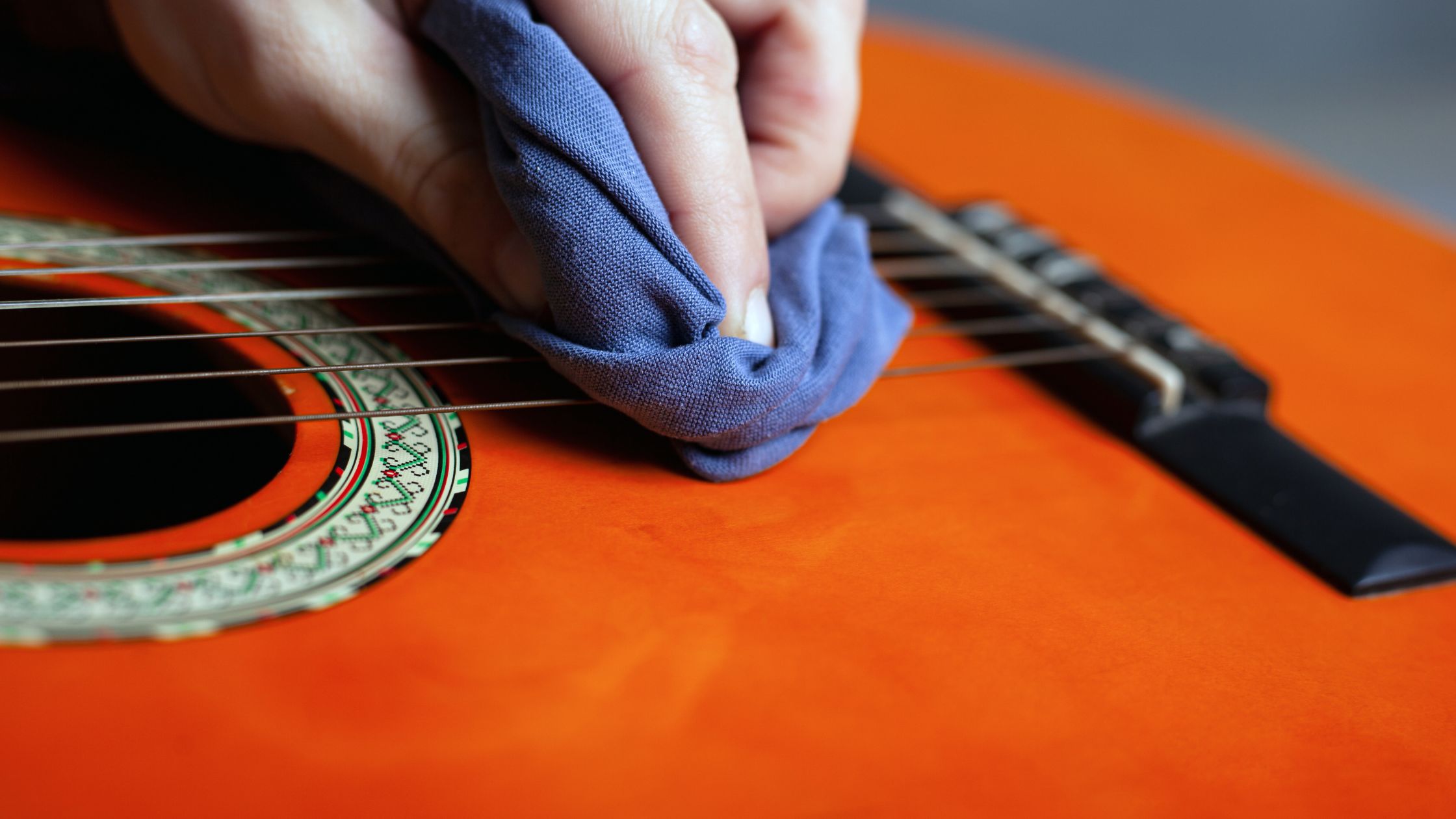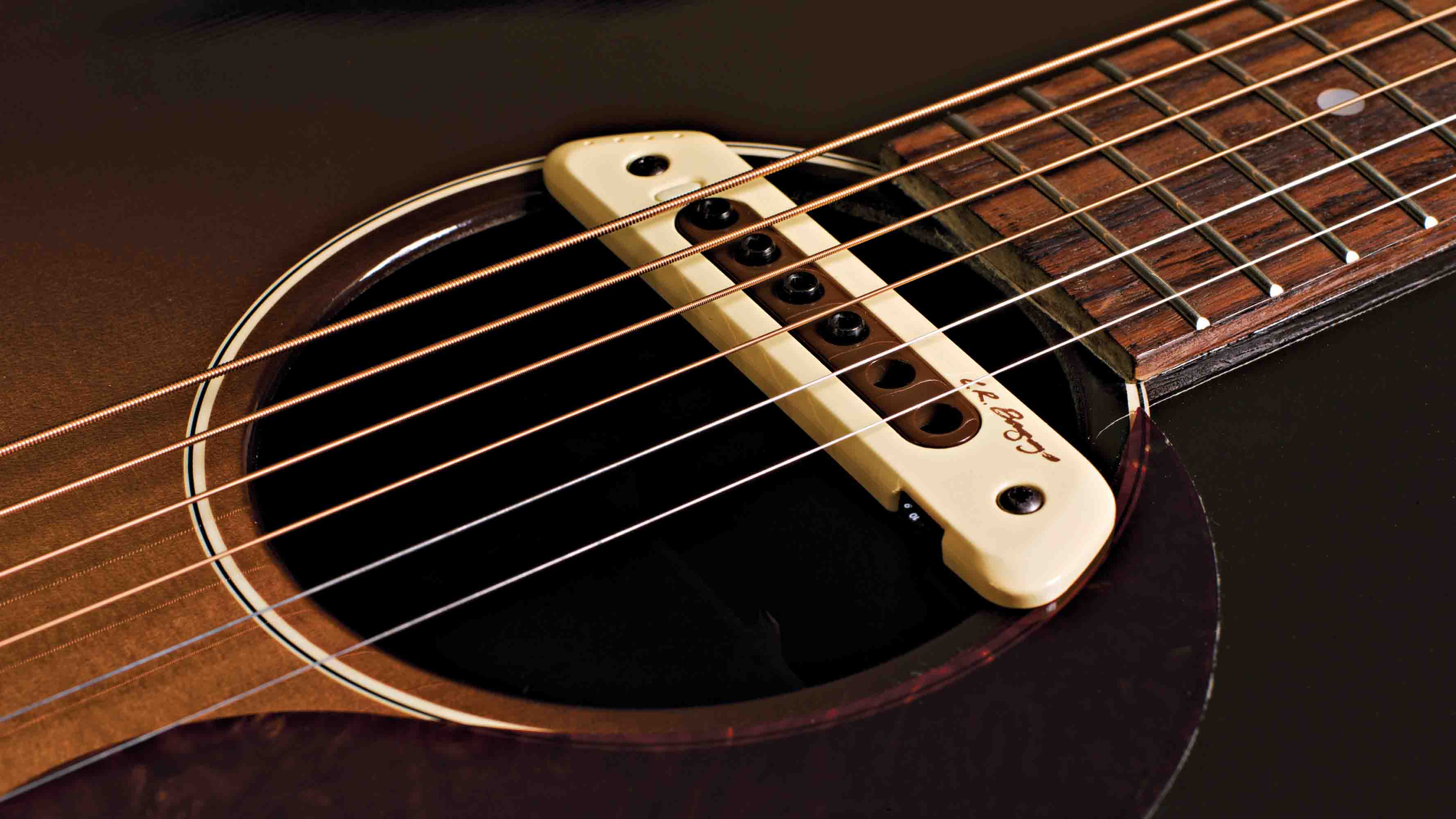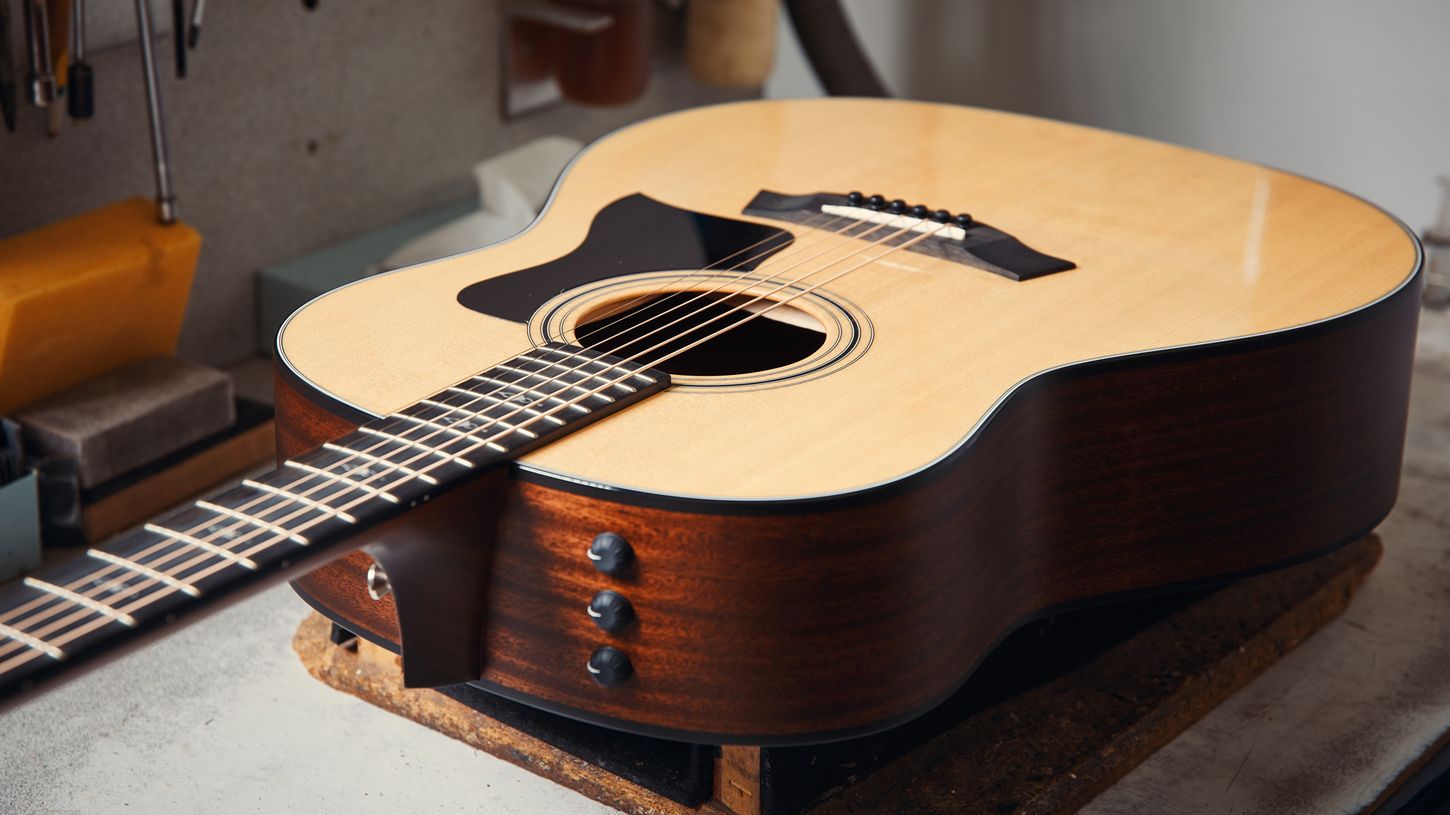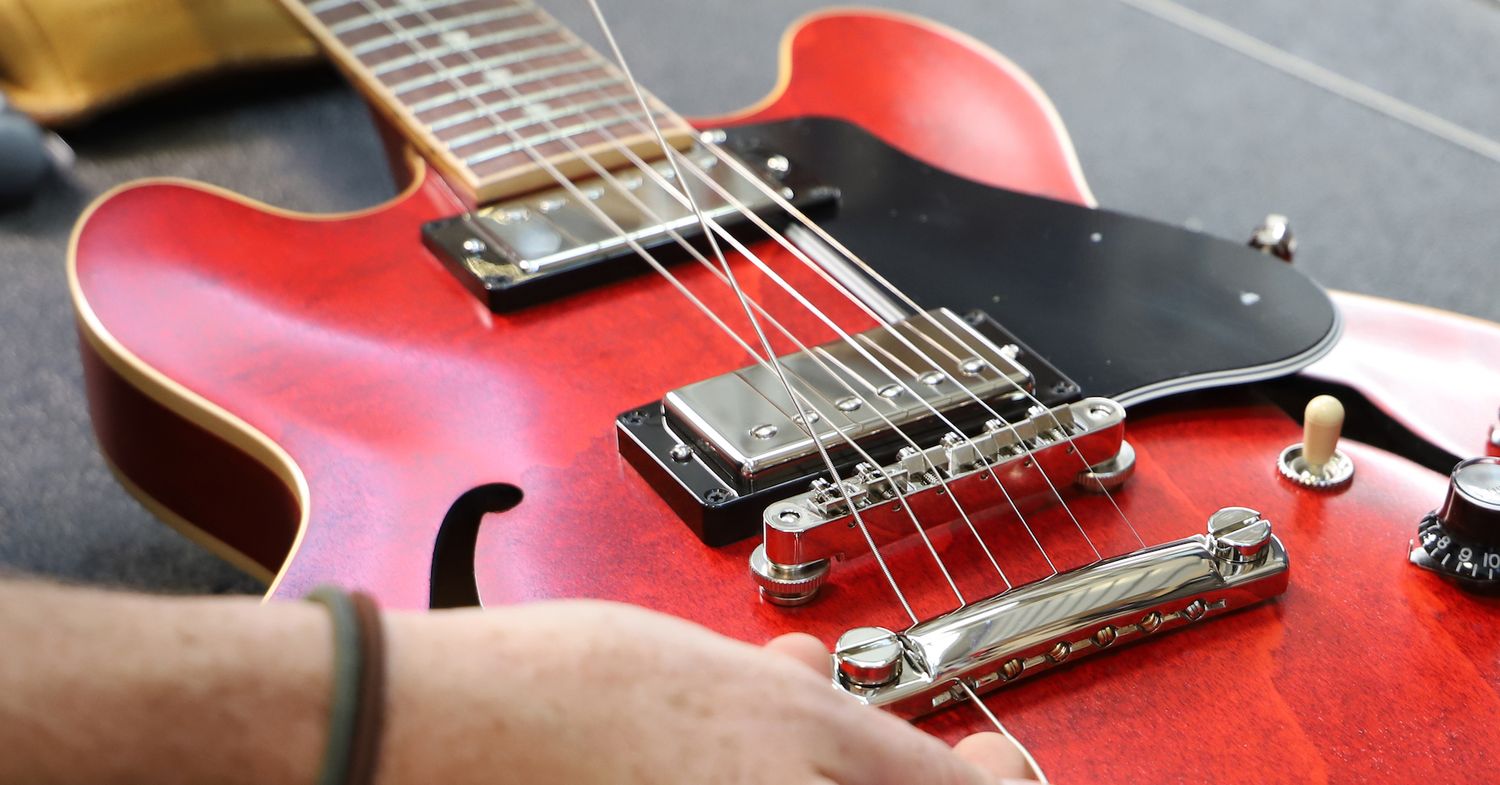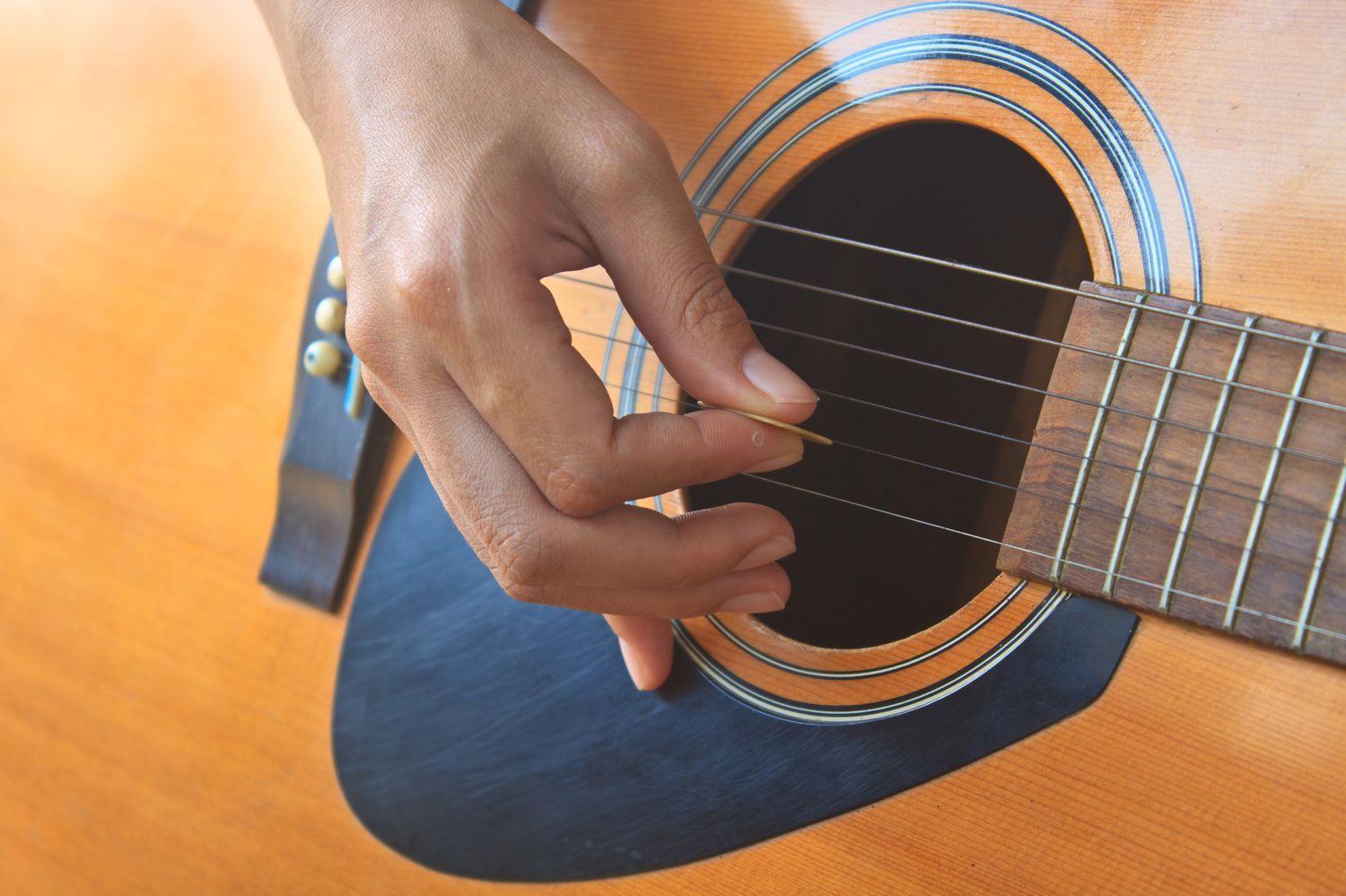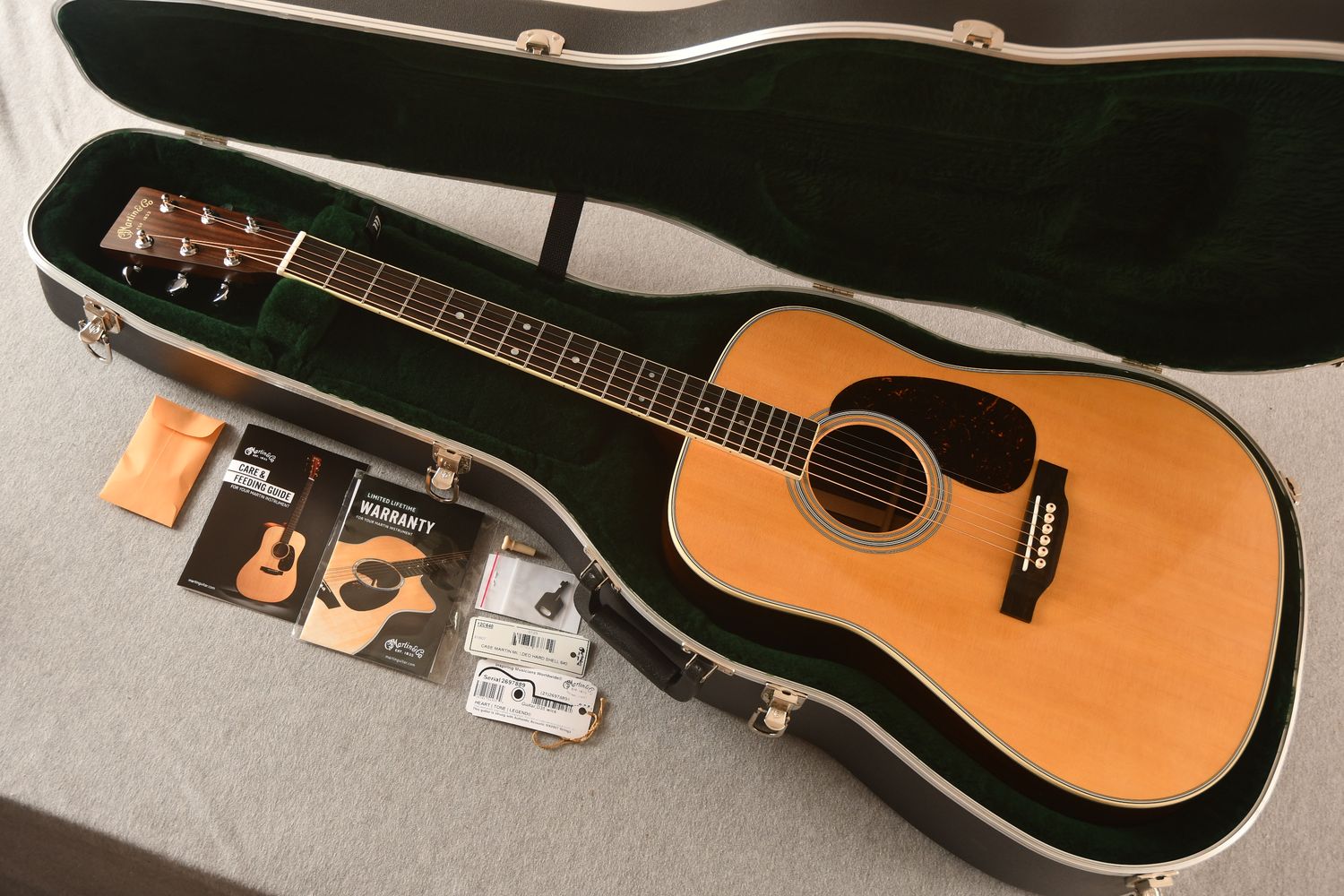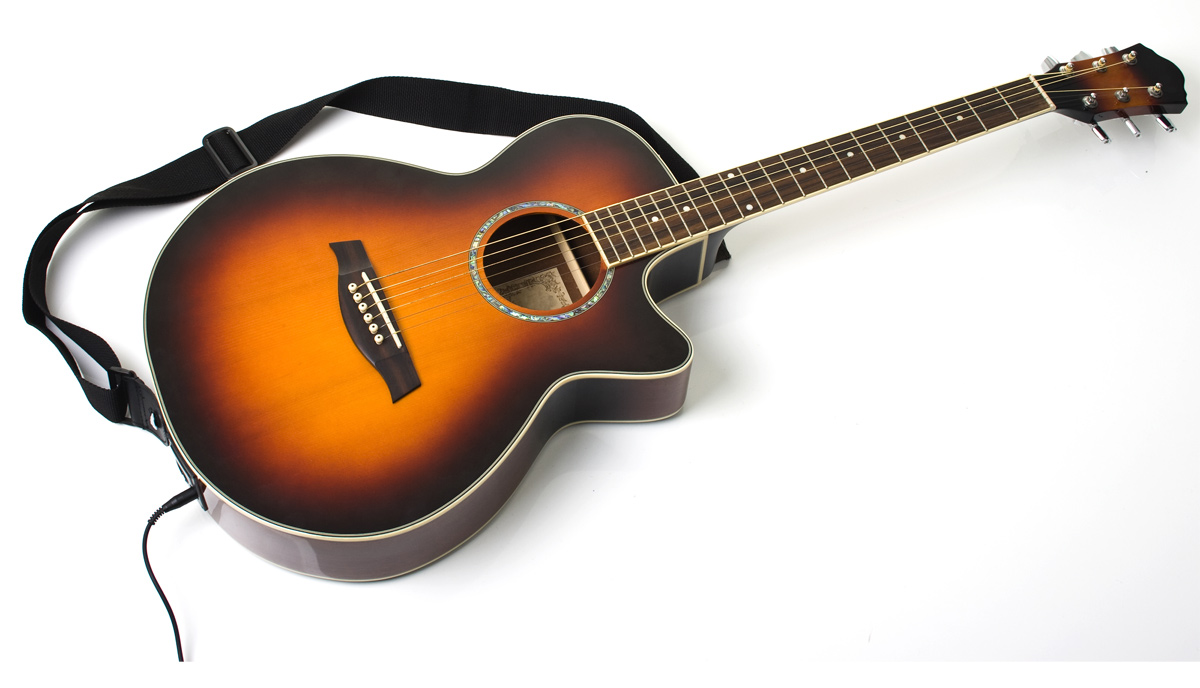Home>Production & Technology>Acoustic>What Makes An Acoustic Guitar Expensive
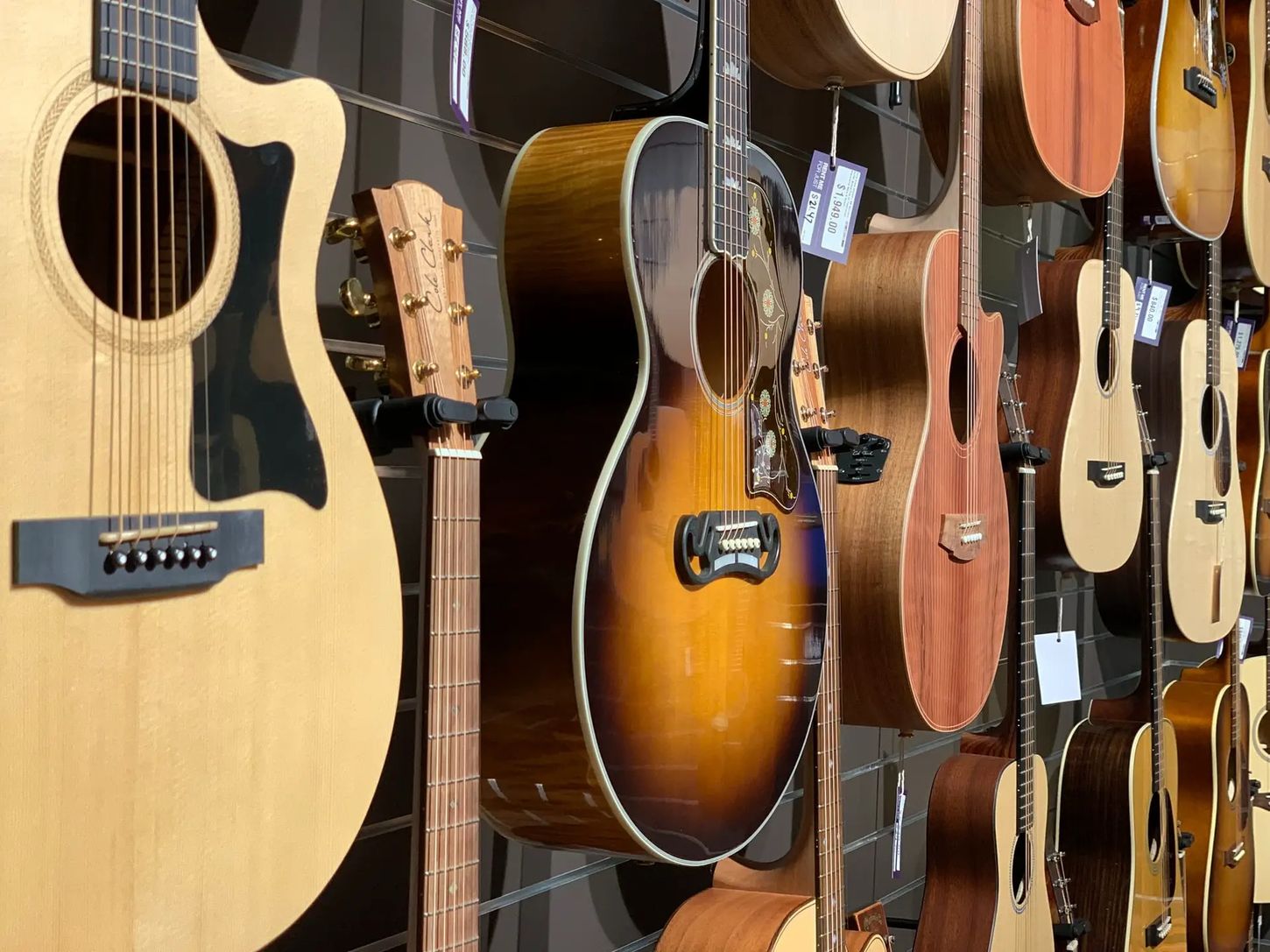

Acoustic
What Makes An Acoustic Guitar Expensive
Published: March 12, 2024
Discover the factors that contribute to the high cost of acoustic guitars and understand why quality craftsmanship and materials make them a worthwhile investment. Explore the intricate details that set expensive acoustic guitars apart from the rest.
(Many of the links in this article redirect to a specific reviewed product. Your purchase of these products through affiliate links helps to generate commission for AudioLover.com, at no extra cost. Learn more)
Table of Contents
Materials used in construction
The materials used in the construction of an acoustic guitar play a pivotal role in determining its quality, durability, and ultimately, its price. From the wood used for the body to the components that make up the neck and fretboard, every element contributes to the overall tone and feel of the instrument.
1. Wood selection
The choice of wood significantly impacts the sound and aesthetics of an acoustic guitar. High-end guitars often feature premium tonewoods such as Sitka spruce, Adirondack spruce, or cedar for the soundboard, as these woods are renowned for their resonance and tonal clarity. The back and sides of the guitar may be crafted from luxurious woods like rosewood, mahogany, or maple, which not only enhance the instrument's sonic characteristics but also exude a sense of opulence.
2. Neck and fretboard materials
The neck and fretboard materials also contribute to the overall feel and playability of the guitar. Exotic woods like ebony, rosewood, and maple are commonly used for fretboards, offering smoothness and durability while adding a touch of elegance to the instrument. Additionally, the choice of wood for the neck, such as mahogany or maple, can influence the guitar's stability and resonance, factors that are highly valued in premium instruments.
3. Hardware and fittings
In high-end acoustic guitars, attention to detail extends to the hardware and fittings. Components such as the bridge, nut, and tuning machines are often made from high-quality materials like bone, ivory, or precision-engineered metals. These materials not only enhance the guitar's functionality and tuning stability but also contribute to its overall aesthetic appeal.
4. Bracing and internal components
The internal bracing of an acoustic guitar, typically made from spruce or other hardwoods, is crucial in shaping the instrument's tonal characteristics. Premium guitars often feature meticulously crafted bracing patterns that are designed to optimize resonance, projection, and tonal balance, resulting in a rich and nuanced sound.
In essence, the materials used in the construction of an acoustic guitar are a testament to the craftsmanship and attention to detail that goes into creating a high-quality instrument. By carefully selecting and combining premium woods, hardware, and internal components, luthiers can produce guitars that not only sound exceptional but also exude a sense of luxury and artistry, making them highly sought after by discerning musicians and collectors alike.
Quality of craftsmanship
The quality of craftsmanship is a defining factor in the value and desirability of an acoustic guitar. When it comes to high-end instruments, every aspect of the construction process is meticulously executed to achieve unparalleled precision, durability, and aesthetic appeal.
-
Precision in construction:
Craftsmanship in high-end acoustic guitars involves an exceptional level of precision. Luthiers, or skilled guitar makers, meticulously shape and assemble each component, ensuring seamless joints, precise fretwork, and immaculate finishes. This attention to detail not only enhances the visual allure of the instrument but also contributes to its playability and structural integrity. -
Attention to detail:
The hallmark of superior craftsmanship lies in the meticulous attention to detail at every stage of the guitar-making process. From the selection and bookmatching of tonewoods to the delicate inlay work and binding, every element is executed with unwavering precision and artistry. This dedication to perfection results in instruments that are not only visually stunning but also exhibit flawless construction and finishing. -
Handcrafted excellence:
Many high-end acoustic guitars are handcrafted, with master luthiers pouring their expertise and passion into every instrument they create. This hands-on approach allows for a level of customization and individuality that is unparalleled, as each guitar bears the unique imprint of its maker. The human touch in the crafting process imbues these instruments with a sense of artistry and soul, elevating them beyond mere musical tools to coveted works of art. -
Innovative techniques:
Craftsmanship in premium acoustic guitars often involves the integration of innovative techniques and technologies. Luthiers continually push the boundaries of traditional guitar making, experimenting with new bracing patterns, construction methods, and finishing processes to achieve sonic excellence and aesthetic innovation. This commitment to innovation ensures that high-end guitars not only embody time-honored craftsmanship but also reflect the cutting edge of lutherie.
In essence, the quality of craftsmanship in high-end acoustic guitars is a testament to the dedication, skill, and artistry of the luthiers who bring these instruments to life. Through a harmonious blend of tradition, innovation, and unwavering attention to detail, these master craftsmen create instruments that transcend the realm of mere musical tools, emerging as timeless expressions of creativity and excellence.
Brand reputation
The reputation of a brand holds immense significance in the world of acoustic guitars, often serving as a powerful indicator of quality, heritage, and overall excellence. Established guitar manufacturers with a long-standing legacy of crafting exceptional instruments command a level of respect and admiration that transcends generations. Here's a closer look at the pivotal role of brand reputation in the realm of high-end acoustic guitars:
-
Legacy and Heritage: Renowned guitar brands often boast a rich heritage that spans decades, if not centuries. This legacy is built upon a foundation of innovation, craftsmanship, and a relentless pursuit of sonic perfection. As a result, instruments bearing the insignia of these esteemed brands carry with them a sense of history and tradition, appealing to musicians who value the time-honored artistry of instrument making.
-
Quality Assurance: A reputable brand signifies a commitment to uncompromising quality standards. Guitar manufacturers with a sterling reputation meticulously oversee every aspect of the production process, from wood selection to final assembly, ensuring that each instrument meets exacting standards of excellence. This dedication to quality assurance instills confidence in musicians, assuring them that they are investing in an instrument of unparalleled craftsmanship and sonic prowess.
-
Innovation and Expertise: Esteemed guitar brands often serve as bastions of innovation and expertise within the industry. Through continuous research, development, and collaboration with master luthiers and musicians, these brands push the boundaries of guitar design and construction, introducing groundbreaking technologies and techniques that elevate the art of acoustic guitar making. As a result, instruments bearing the imprimatur of these visionary brands are celebrated for their forward-thinking design and sonic innovation.
-
Artist Endorsements and Legacy: The association of celebrated musicians with a particular guitar brand can significantly enhance its reputation. When iconic artists and virtuosos choose to align themselves with a specific manufacturer, it not only underscores the brand's commitment to excellence but also imbues its instruments with a sense of musical legacy and authenticity. This association with legendary performers further cements the brand's reputation as a purveyor of instruments that resonate with the highest echelons of musical artistry.
-
Resale Value and Collectibility: Acoustic guitars from esteemed brands often retain their value exceptionally well and, in some cases, appreciate over time. The desirability and collectibility of instruments from these revered manufacturers make them coveted among collectors and musicians alike, further solidifying the enduring allure of the brand and its instruments.
In essence, brand reputation is a cornerstone of the high-end acoustic guitar market, embodying a legacy of excellence, innovation, and unwavering dedication to the craft. Instruments bearing the insignia of esteemed brands not only represent the pinnacle of lutherie but also serve as timeless symbols of artistic expression and musical prowess.
Additional features and customization
In the realm of high-end acoustic guitars, the allure of customization and the inclusion of additional features further elevate these instruments to the pinnacle of sonic artistry and individual expression. Beyond the fundamental elements of construction and craftsmanship, the ability to tailor specific aspects of a guitar to suit the preferences and playing style of a musician adds a layer of exclusivity and personal connection to the instrument.
1. Custom Inlay and Ornamentation
Custom inlay work and ornate ornamentation are hallmark features of many high-end acoustic guitars. Luthiers and manufacturers collaborate with skilled artisans to create intricate designs that adorn the fretboard, headstock, and body of the instrument. These bespoke embellishments often draw inspiration from a musician's personal story, cultural heritage, or artistic vision, resulting in a guitar that is not only visually striking but also deeply meaningful to its owner.
2. Unique Wood Combinations
Customization extends to the selection of wood combinations for the body, neck, and fretboard of the guitar. Discerning musicians have the opportunity to choose from a diverse array of tonewoods, allowing them to tailor the instrument's tonal characteristics to align with their sonic preferences. Whether it's the warmth of mahogany, the clarity of maple, or the richness of rosewood, the ability to personalize the wood selection imparts a sense of individuality and sonic identity to the instrument.
3. Electronics and Pickup Systems
For acoustic-electric guitars, the inclusion of premium electronics and pickup systems is a crucial aspect of customization. High-end instruments often feature state-of-the-art transducer technology, preamps, and onboard controls that are meticulously integrated to preserve the acoustic integrity of the guitar while offering unparalleled amplification and tonal shaping capabilities. Musicians can collaborate with luthiers to select and install electronics that best complement their performance needs, ensuring a seamless transition from intimate acoustic settings to larger stages.
4. Ergonomic Design and Playability
Customization also extends to the ergonomic design and playability of the instrument. Luthiers work closely with musicians to tailor the neck profile, fretboard radius, and overall body contours to accommodate individual playing styles and preferences. This personalized approach to instrument design ensures optimal comfort and facilitates effortless playability, allowing musicians to form a deeply intuitive connection with their custom-crafted guitar.
5. Limited Edition and Signature Models
Many esteemed guitar manufacturers offer limited edition and signature models, affording musicians the opportunity to own a truly exclusive instrument. These guitars often feature unique aesthetic appointments, specialized tonewoods, and personalized specifications that pay homage to iconic musicians or commemorate significant milestones in the brand's history. The acquisition of a limited edition or signature model represents a rare and cherished opportunity to own a piece of musical history, further enriching the allure of high-end acoustic guitars.
In essence, the realm of high-end acoustic guitars embraces a culture of customization and exclusivity, allowing musicians to partake in the creation of instruments that reflect their artistic vision and sonic aspirations. Through bespoke inlay work, personalized wood selection, premium electronics, ergonomic design, and limited edition offerings, the world of high-end acoustic guitars transcends the realm of mere instruments, emerging as bespoke works of art that resonate with the individuality and creativity of their owners.
Tone and sound quality
The tone and sound quality of an acoustic guitar are paramount factors that distinguish high-end instruments from their counterparts. These guitars are revered for their ability to produce rich, resonant tones with exceptional clarity, depth, and dynamic range. The meticulous selection of tonewoods, coupled with precise construction techniques, contributes to the distinct sonic character of these instruments.
-
Tonewood Selection: High-end acoustic guitars are often crafted using premium tonewoods renowned for their acoustic properties. The choice of wood for the soundboard, back, and sides profoundly influences the instrument's tonal characteristics. For instance, Sitka spruce is prized for its balanced tonal response, projecting clear highs and robust lows, while cedar offers a warmer, more nuanced tonal profile. Similarly, the selection of tonewoods such as rosewood, mahogany, or maple for the back and sides further shapes the guitar's tonal palette, imbuing it with unique sonic signatures.
-
Resonance and Projection: The resonance and projection of a high-end acoustic guitar are indicative of its sound quality. These instruments are meticulously braced and crafted to optimize resonance, allowing the soundboard to vibrate freely and produce rich, full-bodied tones. The projection of the instrument ensures that the sound carries with clarity and authority, whether in intimate acoustic settings or larger performance venues. The combination of tonewood selection, bracing patterns, and construction techniques culminates in guitars that resonate with exceptional clarity and volume.
-
Sustain and Articulation: High-end acoustic guitars are celebrated for their extended sustain and articulate note definition. The inherent properties of premium tonewoods, coupled with precise construction and setup, contribute to the instrument's ability to sustain notes with remarkable clarity and depth. Each note is imbued with a distinct articulation, allowing for expressive playing and nuanced musical phrasing. The seamless integration of tonal elements, from the initial attack to the decay of each note, exemplifies the superior sound quality of these instruments.
-
Dynamic Range and Responsiveness: The dynamic range and responsiveness of high-end acoustic guitars afford musicians a wide spectrum of tonal expression. From delicate fingerstyle passages to robust strumming, these instruments respond with sensitivity and versatility, allowing for nuanced dynamics and expressive playing. The guitar's ability to convey the subtlest nuances of touch and technique, while also accommodating powerful, emotive playing, underscores its exceptional sound quality and responsiveness.
In essence, the tone and sound quality of high-end acoustic guitars epitomize the pinnacle of lutherie, showcasing a harmonious fusion of tonal richness, resonance, sustain, and dynamic expressiveness. These instruments stand as exemplars of sonic artistry, inviting musicians to embark on a journey of musical discovery and creative expression through their unparalleled tonal and sonic capabilities.

